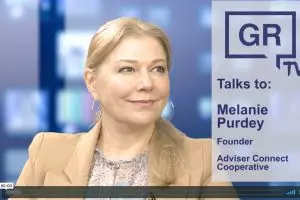[GRTV] Why a four day week is good; Fears about markets

Joining me now is Andrew Barnes. Andrew is the founder of the Four-Day Week and also the founder of Perpetual Guardian in New Zealand. So, look, thanks for coming in. I know you spend a lot of time overseas, so it's good to see you here.
Andrew: Good to see you, too.
I'd like to start with the Four-Day Week. What triggered you to go down this tra...



![[OPINION] Tax Efficiency vs. Real Returns: Are you being penny wise and pound foolish?](https://goodreturns.publit.io/file/c_fill,w_300,h_200/eb495911-87ec-46c6-9a16-6eeb5c81e7fb-9.webp)



![[GRTV] Financial advice transformed my life: Shanks](https://goodreturns.publit.io/file/c_fill,w_300,h_200/46d7dfaf-2f85-4b18-bc25-617a9f5cc6dc.webp)
![[GRTV] The winners and losers from Covid-19](https://goodreturns.publit.io/file/c_fill,w_300,h_200/c718a19c-219a-42ee-aaf9-108f97c56535.webp)
![[GRTV] Depressing imbalances in IP market: Hutchinson](https://goodreturns.publit.io/file/c_fill,w_300,h_200/ceee2a85-719d-4b8a-8314-38c1f3138145.webp)
